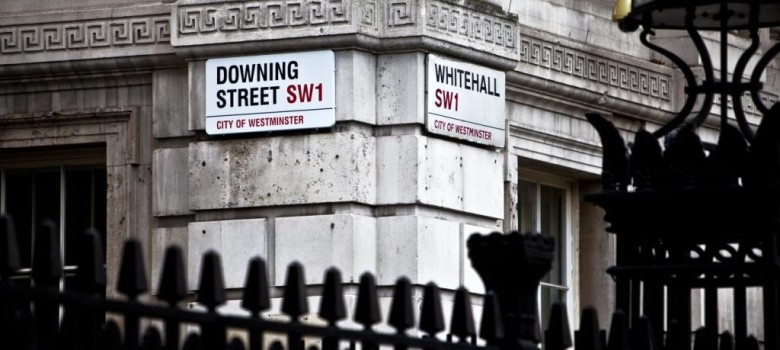
Why Did the Cabinet Reshuffle Occur?
On the 4th September, the Prime Minister announced the first major cabinet reshuffle of the coalition government with the intention of getting the economy moving. While nervous cabinet ministers and their junior colleagues were anxiously waiting for that phone call on Monday, the government had already announced over the weekend that it had hired the CEO of the London 2012 Olympics delivery committed, Paul Deighton, to become the new Minister for Delivery.
In newspaper columns and sofa interviews this week, the Prime Minister emphasised that infrastructure, delivery and investment were key to getting the economy moving. But will these cabinet reshuffles and initiatives be at the expense of the environment and developing the green economy?
View on Cabinet Appointments
One of the key movements in the Cabinet was to replace Caroline Spelmen with Owen Paterson as Secretary of State for the Environment, Food & Rural Affairs.
Caroline Spelmen has led DEFRA (the Department for Environment, Food & Rural Affairs) for just over two years and despite being marred by several controversial policies – the proposed sell-off of large sections of the nation’s forests, High Speed 2 Rail (HS2) environmental impact and the badger cull initiative – she has done some good things, including the introduction of mandatory carbon reporting rules and making a viable case for green growth as a mechanism to help drive the economic recovery. That said, by cutting 30% of her department’s budget in 2010, her ability to make more of an impact was seriously reduced.
Her replacement, Owen Paterson, has never hidden his contempt for wind farms. In May it was reported that he told the cabinet to “end all energy subsidies”. In addition, like the Chancellor of the Exchequer, he is a big supporter of shale gas and now both will be pushing to fast track its exploitation.
With this reshuffle going through, it’s easy to wonder whether David Cameron really believes his pledge to make this coalition government “the greenest ever”. This appointment has served to significantly weaken the green voice at the cabinet table and leaves the Liberal Democrats trying to reinforce their influence in this area.
Justine Greening also lost her job as Transport Secretary as a result of the reshuffle. The MP for Putney was one of the strongest voices opposing the third runway at Heathrow, and both Zac Goldsmith MP and Mayor Boris Johnson have been quick to come out in her support. Grant Shapps, the new Conservative Party Chairman, admitted this week that the new runway was back on the table as a serious option towards airport expansion in the southeast of England. This was then confirmed on 5th September when the Prime Minister announced an imminent review on Heathrow and other airports.
Concluding Impact on the Environment & the Green Economy
While the expansion of Heathrow will not be legislated on this Parliament, the review announcement yesterday clearly demonstrates that the government wants to solidify a team that will support the creation of big infrastructure projects quickly to stimulate the economy. However, the case of Heathrow, this will come at the expense of the environment and noise pollution for surrounding residents.
Another negative impact of this weeks’ reshuffle is the announcement to accelerate planning permission and potentially build on ‘green belt’ land. This is especially disheartening as we have yet to exploit the opportunities of making use of ‘brownfield’ sites or work on sites that already have planning permission.
So, to summarise, a few negative clouds this week have descended on moving environmental and green energy policies forward. What we need to turn this around is a clear delivery plan on how existing initiatives like the Green Deal and Renewable Heat Incentive will be launched and made successful. We also need more openness and transparency on how further reviews on feed-in tariffs will be undertaken.
With the Green Investment Bank set be fully operational by the end of this parliament and private sector investment increasing on clean energy generation projects, the government needs to be more supportive of these schemes. They need to be less willing to go for the easy choices that may have detrimental environmental impact and may cost us all in the long run.
Let’s get Paul Deighton to help bring in funds to deliver new railways, industrial scale energy efficiency initiatives and large green energy investment projects, and less ‘fracking’, new runways or new roads.












‘Let’s get Paul Deighton to help bring in funds to deliver new railways, industrial scale energy efficiency initiatives and large green energy investment projects, and less ‘fracking’, new runways or new roads.’
Interesting…but how can we contact Paul Deighton to pressure him to do that?
Mr Morozowich – thanks for your query and we value your post to the article first of all.
To contact the HM Treasury team you can email directly: ministers@hm-treasury.gov.uk.
Paul Deighton will take his post in the New Year, replacing the current Commercial Secretary to the Treasury, Lord Sassoon. He will receive a peerage and sit in the House of Lords. If you try and search here from Jan 2013: http://www.parliament.uk/mps-lords-and-offices/lords/ as most Lords members leave a direct number and an email address for direct contact. In addition as events pick-up from the middle of this month (following summer recess) TheGreenAge we will be attending industry conferences and will airing our views and of our fans & readers to policy & law makers. Hope this answers your question. Happy to clarify.